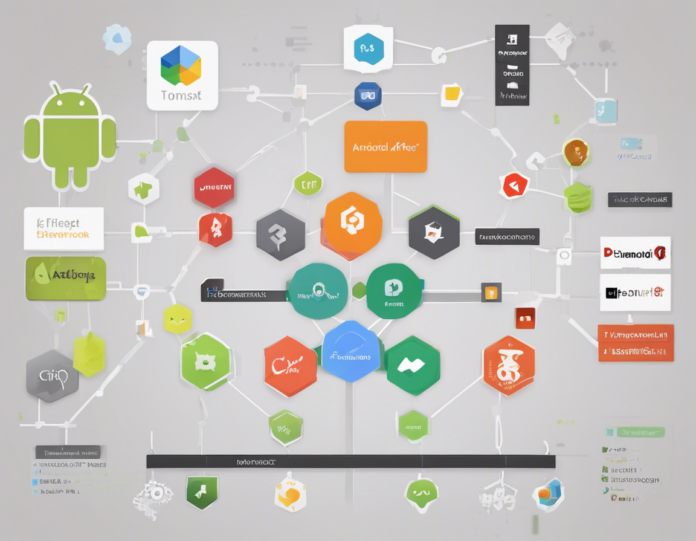In the world of Android app development, frameworks play a crucial role in helping developers streamline their workflow, enhance app performance, and simplify the development process. With a plethora of frameworks available, it can be overwhelming to determine which ones are essential for your projects. In this article, we’ll explore some of the most important Android frameworks that every developer should be familiar with.
Introduction to Android Frameworks
Android frameworks are sets of pre-written code and libraries that provide a foundation for building Android applications. These frameworks offer reusable components, tools, and APIs that simplify common tasks and enable developers to focus on creating unique features for their apps.
1. Android Jetpack
Android Jetpack is a collection of libraries, tools, and guidance to help developers build high-quality Android apps. It provides components to handle tasks such as navigation, UI, data persistence, and more. Some of the key libraries in Android Jetpack include:
- ViewModel: Manages UI-related data in a lifecycle-conscious way.
- LiveData: Build data objects that notify views when the underlying database changes.
- Room: Provides an abstraction layer over SQLite to allow for more robust database access.
- WorkManager: Manage deferrable, asynchronous tasks.
- Navigation: Handle everything needed for in-app navigation.
2. Retrofit
Retrofit is a type-safe HTTP client for Android and Java. It simplifies the process of making network requests and processing their responses. By defining an interface with specific endpoints and parameters, Retrofit handles the REST API calls and returns the parsed responses in a structured way. Retrofit also supports various serialization formats like JSON and XML.
3. Glide
Glide is a fast and efficient open-source media management and image loading framework for Android. It provides an easy way to display images, load thumbnails, and animate image changes. Glide offers features such as caching, request prioritization, and thumbnail support, making it a popular choice for handling image loading in Android apps.
4. Dagger 2
Dagger 2 is a dependency injection framework for Android and Java. It helps manage object creation and alleviate dependencies among classes. By defining custom scopes and modules, Dagger 2 simplifies the process of injecting dependencies into objects, improving code readability and maintainability.
5. RxJava
RxJava is a reactive programming library for composing asynchronous and event-based programs. It provides a fluent interface for manipulating data streams and simplifying multithreading in Android apps. By using Observables, Subscribers, and Operators, developers can write concise and readable code to handle asynchronous tasks.
6. Butter Knife
Butter Knife is a view binding library for Android apps that reduces boilerplate code when working with UI elements. It binds views to fields and methods with annotations, eliminating the need for findViewById calls. Butter Knife simplifies view injection and click listeners, improving code readability and maintainability.
Frequently Asked Questions (FAQs):
Q1: What are Android frameworks?
A1: Android frameworks are sets of pre-written code and libraries that provide a foundation for building Android applications. They offer reusable components, tools, and APIs to simplify common development tasks.
Q2: Why are frameworks important in Android development?
A2: Frameworks help streamline the development process, enhance app performance, and provide solutions to common challenges in Android app development. They save time and effort by offering pre-built components and functionality.
Q3: Which is the most widely used framework for network requests in Android apps?
A3: Retrofit is one of the most popular frameworks for making network requests in Android apps. It simplifies the process of interacting with REST APIs and processing responses in a structured manner.
Q4: How does Dagger 2 help in Android development?
A4: Dagger 2 is a dependency injection framework that helps manage object creation and handle dependencies among classes. It simplifies the process of injecting dependencies into objects, improving code maintainability and testability.
Q5: What is reactive programming, and how does RxJava help in Android development?
A5: Reactive programming is a programming paradigm for handling asynchronous data streams. RxJava, a reactive programming library, simplifies the management of asynchronous tasks by providing a fluent interface for composing data streams.
In conclusion, familiarizing yourself with essential Android frameworks can greatly benefit your app development projects by increasing productivity, improving code quality, and enhancing user experience. By leveraging the power of these frameworks, developers can create robust and efficient Android applications that meet the demands of today’s mobile users.





